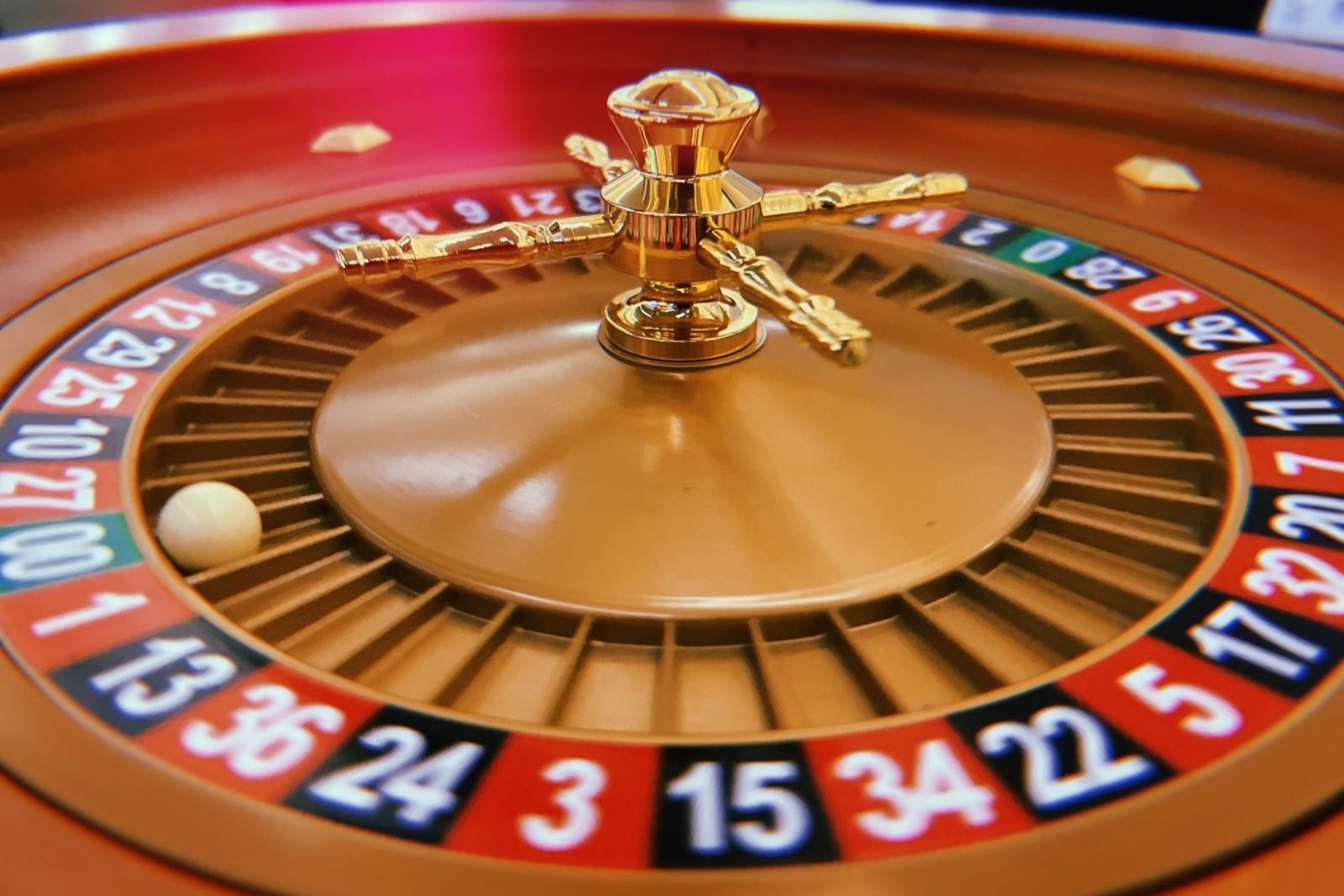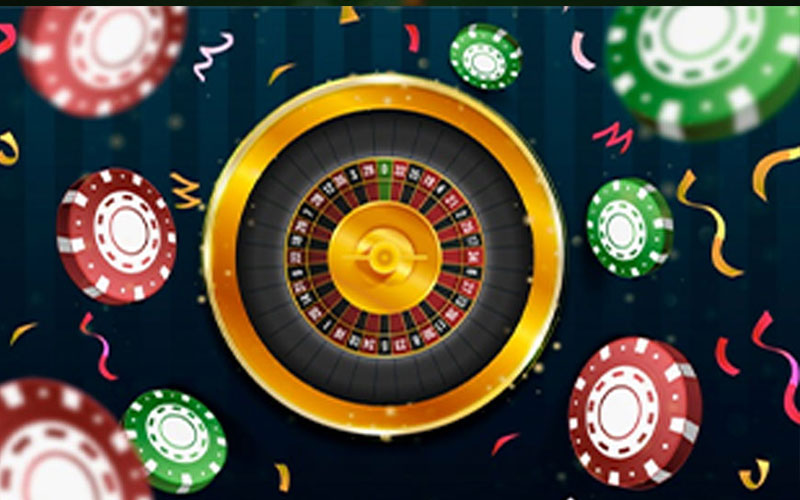Roulette, one of the most popular casino games in the world, is known for its distinctive spinning wheel, betting opportunities, and the thrill of chance. The name “Roulette” is derived from the French word meaning “little wheel,” and it has a rich and fascinating history that spans centuries. This article will explore the origins of the game, its development, and its evolution into the modern form we recognize today.

Early Beginnings: The Invention of the Wheel
The history of roulette can be traced back to the ancient civilizations, but its immediate predecessors are far more recent. The concept of a wheel used in games of chance can be found in early European games. The ancient Greeks and Romans are believed to have played games with spinning wheels, but there is no direct evidence linking these early practices to roulette as we know it.
In the 17th century, gambling games that involved spinning wheels began to emerge in France. However, it was not yet a game called “roulette.” The idea of a roulette-like game may have been inspired by earlier games such as “Roly-Poly” and “Reiner,” which were played in Europe during the late medieval period. These games, which also involved spinning wheels or objects, were part of a growing interest in games of chance and gambling that had been prevalent since the early Renaissance.
The Development of Modern Roulette: Blaise Pascal and the French Influence
The key figure in the creation of modern roulette is often considered to be Blaise Pascal, a renowned French mathematician and inventor. In the 1650s, while working on his studies of probability and mechanics, Pascal is credited with inventing a primitive form of the roulette wheel. Pascal was trying to create a perpetual motion machine, and while he did not succeed in this endeavor, his work on the wheel became a precursor to the roulette wheel.
Although Pascal’s invention was never intended to be a game, the concept of a spinning wheel and the associated randomness became a fundamental part of the game of roulette. By the late 18th century, the concept of roulette began to evolve into the form we recognize today.
The Emergence of the Roulette Game in France
The roulette game, as we know it, began to take shape in France during the late 18th century. The game was first played in Paris, where the concept of spinning a wheel with numbered pockets for players to bet on was formalized. The roulette wheel consisted of 36 numbered slots, divided into red and black colors, and players could place bets on various outcomes, such as specific numbers, groups of numbers, or the color of the number.
It is important to note that the early French version of roulette had a single zero (0) pocket on the wheel, which gave the house a slight advantage over players. The game gained popularity quickly in France and was soon introduced to other parts of Europe.
The Spread of Roulette: Europe and Beyond
As the popularity of roulette grew in France, it quickly spread across Europe. By the 19th century, the game had made its way to other major gambling centers, including Germany and Italy. However, in Germany, a variation of the game was developed, which included two zero pockets on the wheel, known as “double zero” (00). This version of roulette became known as “American Roulette.”
In the early 19th century, the game of roulette was introduced to the United States, where it was embraced with enthusiasm. It was in the United States that the version of the game with the double zero (00) pocket gained widespread popularity, eventually becoming known as “American Roulette” to distinguish it from the French version.
The Influence of Monte Carlo
The game of roulette reached another pivotal moment in its history during the 19th century with the opening of the Casino de Monte-Carlo in Monaco in 1863. The casino’s founder, Prince Charles III of Monaco, played a crucial role in popularizing roulette. The casino introduced a version of roulette with a single zero (0) pocket, in an effort to attract high-rolling gamblers.
The Monte Carlo casino’s adoption of the single zero variant of roulette helped cement its place in the world of gambling. This version became known as “European Roulette,” and it remains the preferred version of the game in most parts of the world today. The reputation of Monte Carlo as a luxurious and exclusive gambling destination also helped to associate roulette with the high society and aristocracy of Europe.
The Evolution of Roulette: Modern Variants
Roulette underwent a number of changes in the 20th century as the game spread around the world. In addition to the original French and American versions, casinos began experimenting with different variations of the game. Some variations, such as “Mini Roulette,” have fewer numbers on the wheel, while others, like “French Roulette,” have additional betting options that offer unique advantages for players.
One of the most significant changes in the modern era of roulette is the development of online roulette. With the rise of internet casinos, roulette became available to players worldwide through digital platforms. Online roulette versions typically mimic the traditional gameplay, offering players the chance to play against the computer or in live dealer settings, where a real dealer spins the wheel in real-time.
Roulette in Popular Culture
Roulette has played a significant role in popular culture, often portrayed in movies, television shows, and literature. It is commonly associated with images of glamour, high stakes, and elegant casinos. Classic films such as “Casino Royale” (1967) and “Ocean’s Eleven” (2001) featured iconic roulette scenes that further solidified the game’s status as a symbol of luxury and excitement.
The association of roulette with high society and glamorous casinos also extends to its portrayal in literature. Many famous writers, including Fyodor Dostoevsky, wrote about the game. Dostoevsky’s novel The Gambler (1867) is centered around the game of roulette, exploring its impact on the characters and their lives.
The Psychology and Appeal of Roulette
What makes roulette so appealing to players is not just the thrill of chance, but the psychology behind the game. The game offers a high level of excitement with every spin of the wheel, and players can experience both moments of intense anticipation and the euphoria of winning. Unlike other games such as blackjack or poker, roulette is entirely based on luck, which makes it appealing to people who enjoy pure chance-based games.
The wide variety of betting options in roulette also contributes to its appeal. Players can bet on a single number, a group of numbers, the color red or black, whether the number is odd or even, or whether the number is high or low. This variety allows players to tailor their strategy to their risk tolerance, and it helps keep the game interesting for both beginners and seasoned gamblers.
Conclusion
The game of roulette has a long and storied history, evolving from ancient wheel-based games to the modern casino classic that is played worldwide today. From its roots in 17th-century France to its spread across Europe and the United States, roulette has maintained its status as one of the most popular and exciting gambling games. Today, the game continues to captivate players with its simple yet thrilling mechanics, offering endless opportunities for chance and strategy. As roulette continues to evolve, whether in physical casinos or online platforms, its enduring appeal shows that the little wheel will remain a timeless symbol of excitement and fortune.



